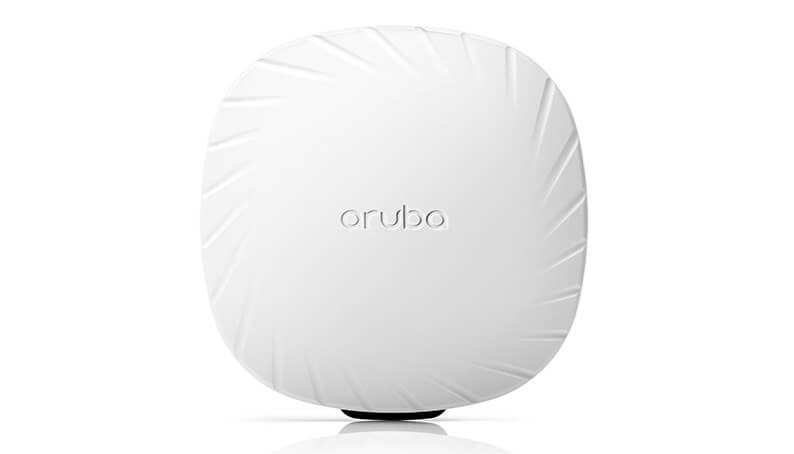
From product and supply chain innovation to services delivery and lifecycle management, sustainability is a key focus for Aruba. That’s why we’re pleased to announce our new eco-friendly packaging in the Aruba 503 Wi-Fi 6 (802.11ax) APs. They’re part of our sustainability initiative and our first Wi-Fi access points that can be purchased in a 10-pack with 80% recycled material to reduce packaging waste. Our 503 Series design further reduces impact on the environment by offering a longer lifecycle, low power consumption, and a small form factor that requires less use of plastic.
Ideal for medium to low-density environments like schools, retail, and branch offices, the Aruba 503 Series Indoor Access Points are compact, cost effective, and Wi-Fi CERTIFIED 6. They also include operational efficiencies that can further reduce the environmental footprint of your network.

Overview of Aruba 503 Wi-Fi 6 Series APs
The 503 Series APs are Wi-Fi 6 (802.11ax) access points designed to optimize user experience by maximizing Wi-Fi efficiency and dramatically reducing airtime contention between clients.
Features include:
- 1.49 Gbps maximum real-world speed (HE80/HE20)
- WPA3 and Enhanced Open security*
- ClientMatch advanced analytics to continuously monitor client health and steer client to the appropriate AP for better user experience
- Air Slice technology to dynamically allocate radio resources, such as time, frequency, and spatial streams, in order to provide SLA-grade application assurance
- AirMatch machine learning to automatically adapt in real time to changing RF conditions
- Advanced Cellular Coordination (ACC) to minimize cellular interference
- OFDMA for enhanced multi-user efficiency*
- IoT-ready Bluetooth 5 and Zigbee support (requires optional radio dongle)
*Part of the Wi-Fi 6 (802.11ax) standard
Dig deeper




